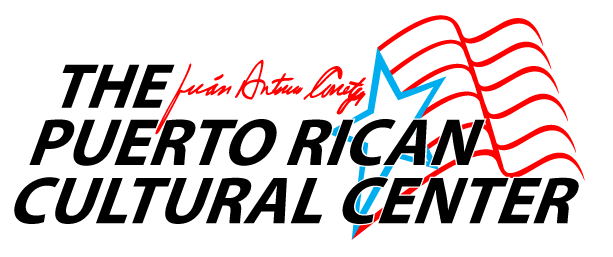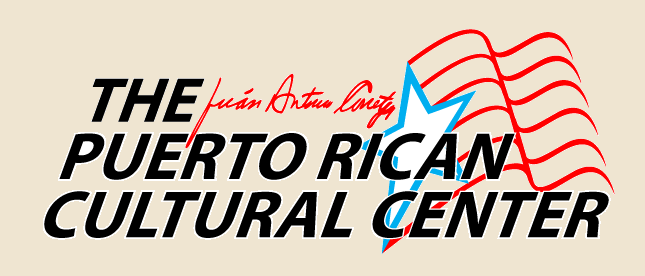When he first ran for Congress in 1992, Luis V. Gutierrez promised he would be a “different kind of Congressman – one who is closer to the people than to the smoke filled rooms in Washington, D.C.” Congressman has amply delivered on his promise.
Clearly comfortable with the heavy burden history has placed on his shoulders, Congressman Gutierrez has become the best known Hispanic official in the United States and, more importantly, one of the few only Hispanic politicians with the moral and political authority to be able to convene the diverse factions of our community at the national level. Undoubtedly, he is the recognized national leader on comprehensive immigration reform.
Evidence of this is the overwhelming response the Familias Unidas national tour has had. In this tour, the Congressman has already visited 16 cities all over the country with the collaboration of the Hispanic Evangelical and Catholic communities. He has only seen churches and other venues filled to capacity. Many Members of Congress, including House Speaker Nancy Pelosi and Congressman John Lewis, one of the most respected members of the Congressional Black Caucus, and several local politicians have joined Gutierrez at the events.
Congressman Gutierrez’s confidence is deeply rooted. It is based on his close ties to the people he represents, his understanding of their problems and his solid commitment to working to find concrete solutions to these problems.
The base of the Congressman’s initiatives has been, and continues to be his Congressional district, where, interestingly, the Puerto Rican community plays such an important role.
Chicago’s Puerto Rican community is where the Congressman grew up and developed as a leader.
Despite the “legal” status of Puerto Ricans in the U.S., Puerto Ricans are immigrants.
Puerto Ricans have always faced discrimination. This was especially true of first generation Puerto Ricans who were brought to the U.S. as cheap labor. The Congressman’s parents were two of the many thousands of Puerto Ricans who came to Chicago in the 50’s and 60’s. Therefore, Congressman Gutierrez grew up in an immigrant household, in an immigrant community.
It was in that working class, ethnically and racially discriminated community that Luis V. Gutierrez received his education, formal and real.
From very early on, he saw how his community was shortchanged when it came to the distribution of government resources and services, such as education, health, housing, employment, and police protection.
In this context, he developed his well-known fighting spirit. It is that principled, uncompromising spirit that has earned him the nickname among our people: “El Gallito.”
Puerto Ricans in Chicago were always a numerically small minority in Chicago. In the struggles of our community, Puerto Ricans learned the art of alliances and coalitions. As the number of Hispanics, especially Mexicans grew, it was only natural to work together with our Latino brothers and sisters.
In that context, Latinos in Chicago learned to develop a common agenda, an agenda to improve the lives of our community in the areas of education, housing, employment and others.
Meanwhile, the imperative need to achieve comprehensive immigration reform has surged to the forefront as the number one problem facing the Hispanic community in the U.S.
Drawing from his strong value system, his personal, ideological and political education and from his experiences in the Chicago City Council and in Congress, Congressman Gutierrez has stepped forward to meet the challenge posed by this thorny issue.
As is well known, politics in the U.S. is moved by money and votes. Immigrants have neither. Immigrants are the least politically influential group in our society. By definition, they have few, if any recognized rights in our society. They do the most dangerous, harder and lesser-paid jobs, the jobs nobody else wants. They tend to live in sub-standard housing, and have very little access to quality health care.
Immigrants work very hard to survive and to help their families in their countries of origin survive. They can’t vote and don’t have the ability to make financial political contributions to elected officials: the opposite of what is usually needed to get Congress to act on your behalf!
Undaunted, Congressman Gutierrez has worked tirelessly since elected to assist immigrants. For example since being “deputized” by the INS to accept and help process applications for citizenship, his office has assisted more than 50,000 immigrants submit their U.S. citizenship applications.
At the national level, Congressman Gutierrez has been at the forefront of every single immigration reform and immigrant rights defense struggle since 1993, from 245 (i), NACARA, to several proposals for comprehensive immigration reform.
Right now, Congressman Gutierrez and the Congressional Hispanic Caucus, which is presided by a Puerto Rican woman, Congresswoman Nydia Velazquez from New York, are reminding President Barack Obama that he has publicly committed to addressing the urgent need for comprehensive immigration reform during the first year of his administration. He needs to deliver on his promise.
The Congressional Hispanic Caucus agrees that comprehensive immigration reform is the number one item in the national Latino agenda.
Congressman Gutierrez’s most memorable achievements have been deemed as “impossible”.
It was considered “impossible” to get President Bill Clinton to commute the sentences the Puerto Rican political prisoners. Congressman Gutierrez played an indispensable role in convincing President Clinton to commute the sentences of 13 of the 15 political prisoners. Eleven of the political prisoners are now in our community.
It was considered “impossible” to get the US Navy out of Vieques. The people of Vieques and Puerto Rico reached that goal. Congressman Gutierrez played an important part in that struggle.
It was considered “impossible” to stop the Rossello pro-statehood administration in Puerto Rico to get the annexionist and unfair Young Bill though Congress. Congresspersons Gutierrez and Velazquez stood in their way and stopped the bill.
Today, some think it is “impossible” to obtain comprehensive immigration reform, justice for immigrants and equality for Latinos.
Congressman Gutierrez has shown and is showing that the way to accomplish these and other goals is through the unity of our community.
It is not enough to achieve unity between Puerto Ricans and Mexicans and other groups.
It is imperative to achieve unity in our communities. It is called community building:
Unity between women and men, between age groups, the incorporation of our communities of faith to the struggles of our communities, and the unity with our business people.
Though his struggles, which are also the struggles of our people, Congressman Gutierrez has shown the way forward. In order to achieve self-determination, Puerto Ricans on the island and in the US, and Latinos in general need to build up our communities, generate common agendas, unite around common issues, and following his example, never shy away from the impossible.
For this commitment to our community, La Voz selected Congressman Gutierrez as our 2008 “Person of the Year.” He will be the keynote speaker at La Voz’s 5th anniversary dinner/reception on April 25, 2009.








[…] He has been at forefront of every single immigration reform and immigrant rights defense struggle since 1993, according to La Voz del Paseo Boricua. […]
Comments are closed.